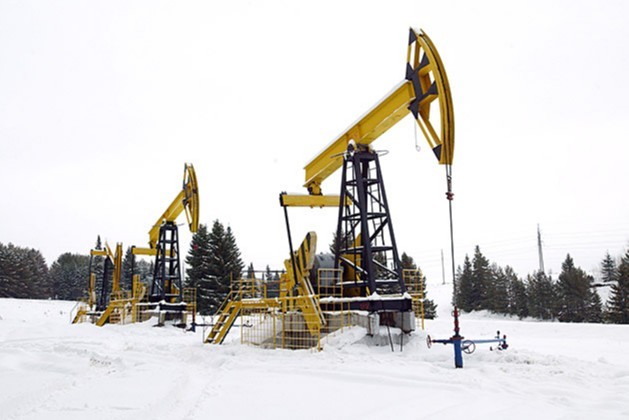(Bloomberg) — Republicans in Congress are dusting off past plans to address climate change as they prepare for the likely prospect they will win control of at least one chamber of Congress in the midterm elections next week. Their ideas include planting millions of trees and boosting energy efficiency, hydropower, nuclear energy and carbon sequestration. They would also increase domestic fossil fuel production by expanding federal oil and gas leasing and banning energy development moratoriums on federal lands.

Source: World Oil
“Our energy solutions are climate solutions,” said Representative Cathy McMorris Rodgers, a Republican from Washington State who is poised to lead the House Energy and Commerce Committee next year if the GOP takes control of the chamber. “America can and must lead the world in reducing emissions without trading our security to the Chinese Communist Party and sacrificing our energy reliability and affordability to OPEC+.”
The International Energy Agency has said stopping all investment in fossil fuel production is necessary to zero out the world’s energy emissions by 2050. The world’s top group of climate scientists, the Intergovernmental Panel on Climate Change, has said significantly reducing fossil fuel use is necessary to limit global warming to 2C and thereby avoid the worst impacts of climate change.
Republicans say more domestic drilling is good for the climate because US energy is cleaner than that produced in other nations with less stringent environmental regulations, and is produced more efficiently. “We care about the climate, we care about the environment, and the way to do that is by increasing American-made energy because it’s better than anywhere else in the world,” said Rebekah Hoshiko, a spokeswoman for Republicans on the House Natural Resources Committee.
Increases in liquefied natural gas or oil could provide some climate benefit under the right circumstances, said Jesse Jenkins, an assistant professor at Princeton University who researches paths to net zero energy. For instance, LNG that replaces coal imports in Asia, or oil production that supplants tar sands development in Canada or heavy crude production in Venezuela, could provide a moderate benefit for the climate, Jenkins said.
“These are all things things that there is a legitimate case they reduce emissions by a modest amount, under the right circumstances. But they are not game changers,” Jenkins said. “They are not going to put the world on a path to net zero emissions.”
Environmental groups are deeply skeptical of the plans. “Unfortunately, if the past is prologue, they are going to trot out more of their same old failed energy policies,” said Tiernan Sittenfeld, a senior vice president with the League of Conservation Voters. “Clearly they want to keep us dependent on fossil fuel to the benefit of big oil and dirty coal.”
Some of the ideas Republicans are considering overlap with those in the Democrats’ Inflation Reduction Act, which includes $370 billion in spending to fight climate change, including generous tax credits for nuclear, hydrogen and carbon capture, and funding for energy technology research and development as well as forestry conservation and new tree planting. No Republicans in Congress voted for the Inflation Reduction Act in August.
The party previewed its plans over the summer, releasing a strategy drawn up by an “energy, climate, and conservation task force” created by House leadership, who promised it would lower energy costs and create jobs while cutting global emissions and reducing America’s reliance on energy from foreign adversaries. The strategy doesn’t specify emissions-reductions targets.
In recent years, GOP lawmakers have largely shifted away from denying the scientific consensus that human activity is causing Earth to warm up. “I’m not here to debate climate change,” Representative Bill Johnson, an Ohio Republican, said when asked about the issue during a recent phone interview. “We are not climate deniers, we just believe that we have better alternatives.” Johnson cast doubt on the severity of climate change and its human causes in a 2013 op-ed; his office didn’t respond to a question about whether his views have changed since then.
But some Republicans argue that cutting emissions dramatically will hurt the economy and that US shouldn’t take aggressive action while countries like China and India pollute heavily — a stance criticized by climate advocates and the Biden White House as “delayism.” Climate change has also been dragged into the culture wars, with Republicans on and off Capitol Hill attacking environmental, social and governance (ESG) investing.
In 2020, GOP forays into addressing climate change ran into opposition from some right-wing groups, who argued the attempts would turn off conservative voters and harm the economy. Among the proposals advanced then were funding for carbon capture, the expansion of a tax credit for companies that capture carbon dioxide and a program — expected to be reprised by the GOP next Congress — to plant 1 trillion trees globally.
“Now they have the opportunity to consider the evidence and decide what policies they want to support,” said Alex Flint, the executive director of Alliance for Market Solutions, a conservative group that favors a tax on carbon to reduce emissions of the planet-warming gas. “They are moving in the right direction, but we don’t know what Republican climate policy is going to be right now.”
But with climate polling dead last this election cycle among conservative Republicans, it remains to be seen how much a of a push the Republican Party will make this time around, especially as gasoline and other energy costs surge.
“Why pivot away from winning messages on the economy, crime and border security?” said Mike McKenna, a GOP strategist. “Nobody cares about climate change.”
An early test will be to see if Kevin McCarthy, the House’s top Republican, opts to keep a special select committee on climate change created by House Speaker Nancy Pelosi in 2019. Former Vice President Mike Pence is already lobbying to have it killed.
“It’s not a Select Committee on Climate Crisis, it’s a Select Committee in support of the War on American Energy,” Pence said on Twitter.

